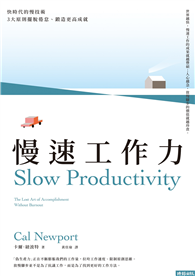This three-volume anthology comprises diverse intellectual responses to the Hamas-organised day of murder, sexual violence and kidnapping.
Responses to 7 October: Antisemitic Discourse focuses on the ideology that motivated it and the antisemitism that shaped many responses to it. It examines the provenance of the Jew-hatred, from English history to Palestinian Islamism; from toxic 19th century ‘Jewish Question’ rhetoric to the perversion of the Trotskyist tradition that allowed parts of the left to embrace antisemitism. It includes Howard Jacobson’s lecture of 22 October on antisemitism and it focuses on what was significant about this attack. There is discussion from Britain, Germany, Poland, and Norway, and a linguistic account of responses.
Responses to 7 October: Law and Society begins with a legal, and a genocide studies critique of the claim that Israel is genocidal; another reflects on the absence of an understanding of antisemitism in international legal discourse. There are reflections on experiences in the Palestine solidarity movement and on the twists that discourse there takes. Contributions draw on Judaism, feminism, and sociology to face what happened and to trace how Israelis were transported back to a quintessentially pre-Israel Jewish experience. Others survey reports of antisemitism around the globe in the wake of 7 October, including pieces about Britain and Germany.
Responses to 7 October: Universities focuses on the heartland of contemporary antisemitic thinking, which is scholarship; and its reflection in student discourse on campus. Contributions go back to Sartre and to debates of Marx’s time; another looks at the New Left forged in the civil rights movement, and shows how antisemitic responses to the 2023 violence were anticipated by some of the responses to the 1967 Arab League aggression. The feminist movement and ‘progressives’ more generally come under scrutiny, and there is analysis of antisemitism on campus after 7 October, showing how it is tolerated and protected there; including in archaeological attempts to deny that there is an ancient Jewish history in Israel.
As a set or individually, these important volumes will appeal to scholars, students and activists with an interest in antisemitism, Jewish studies and the politics of Israel.
| FindBook |
|
有 1 項符合
Rosa Freedman的圖書 |
 |
$ 2474 | Responses to 7 October 3-volume set
作者:Rosa Freedman 出版社:CRC Press 出版日期:2024-05-29 語言:英文 規格:平裝 / 382頁 / 13.8 x 21.6 x 1.91 cm / 普通級/ 初版  看圖書介紹 看圖書介紹
|
|
|
圖書介紹 - 資料來源:博客來 評分:
圖書名稱:Responses to 7 October 3-volume set
內容簡介
作者介紹
Rosa Freedman is Professor of Law at the University of Reading and Research Fellow at the London Centre for the Study of Contemporary Antisemitism, UK.
David Hirsh is the Academic Director and CEO of the London Centre for the Study of Contemporary Antisemitism and a Senior Lecturer in Sociology at Goldsmiths, University of London, UK.
|






![塔木德:猶太人的致富聖經[修訂版]:1000多年來帶領猶太人快速累積財富的神祕經典 塔木德:猶太人的致富聖經[修訂版]:1000多年來帶領猶太人快速累積財富的神祕經典](https://media.taaze.tw/showLargeImage.html?sc=11100697818)




